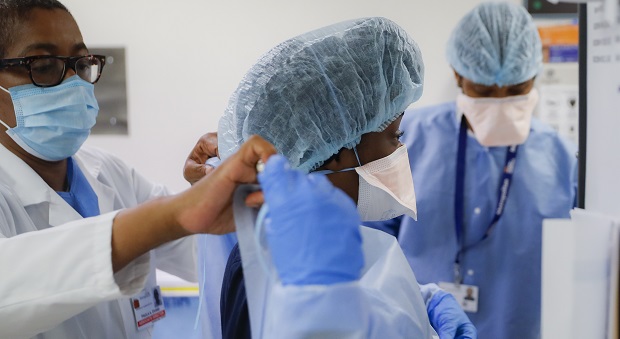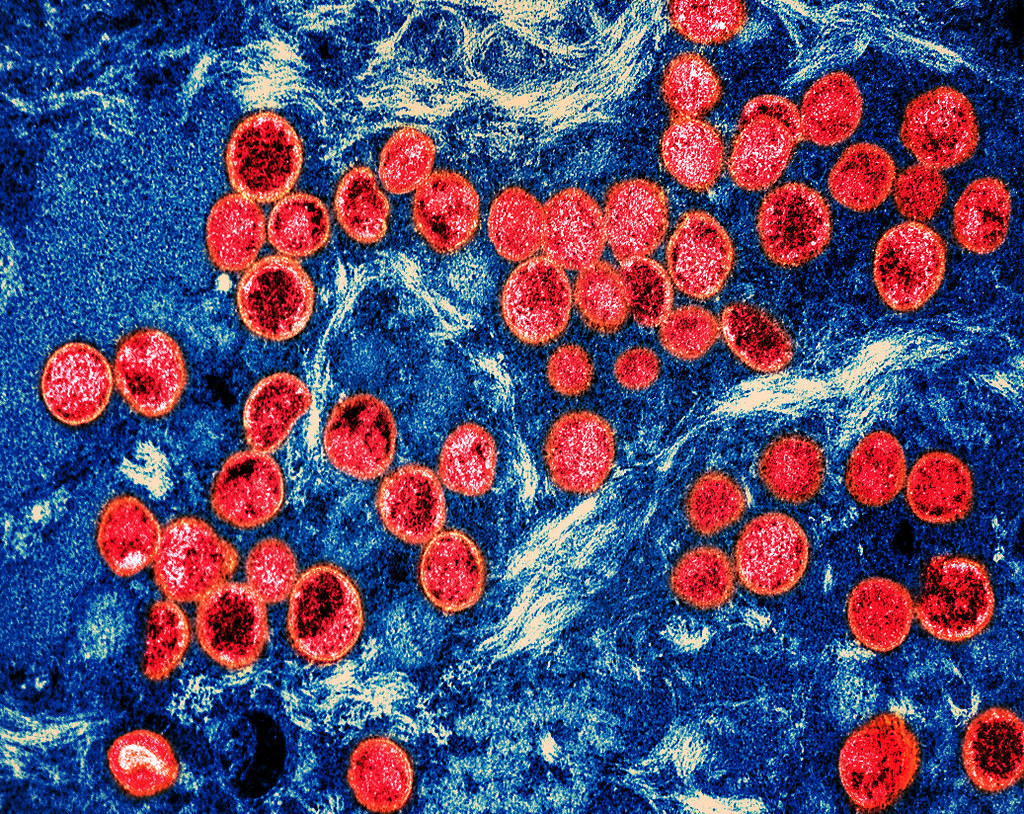[ad_1]

The state is down 5,000 full-time registered nurses and 4,000 licensed practical nurses, and projections show that those shortages could grow as much as three times as large by 2035. (AP Photo/John Minchillo, File)
Maryland is experiencing its worst health care staffing shortage in recent memory, a study commissioned by the Maryland Hospital Association claims, with one in every four nursing positions currently being vacant.
The study, completed by the firm GlobalData, indicates that the current health care workforce shortage will likely continue to get worse without some sort of intervention. The state is down 5,000 full-time registered nurses and 4,000 licensed practical nurses, and projections show that those shortages could grow as much as three times as large by 2035.
Leaders in Maryland’s health care community are desperate to find solutions before the shortage gets to that point.
An MHA task force, convened in late 2021 to address workforce shortages and composed of dozens of health care leaders, identified three key challenges the industry is currently facing that are preventing hospitals and other health care facilities from employing enough workers — and from taking full advantage of the workers they have. These challenges are outlined in MHA’s 2022 State of Maryland’s Health Care Workforce report.
Firstly, hospitals and other health care facilities are struggling to retain workers, who, due largely to burn out, are looking for work in other industries, retiring or seeking less intense roles within health care.
Shifting care delivery methods are also impacting Maryland’s health care workforce, as nurses and other practitioners need to be trained in new health care innovations, like telehealth, as they emerge.
Lastly, the report says that Maryland has an insufficient workforce pipeline. Some of the state’s nursing schools are facing staffing issues themselves, while other obstacles, like tuition, bar potential students from enrolling in nursing programs.
In order to address these challenges, the Task Force on Maryland’s Future Health Workforce compiled a list of potential steps that both the health care industry and policymakers can take to begin solving the state’s health care workforce crisis.
They recommended several possible initiatives that could expand the state’s nursing pipeline, such as creating programs that financially incentives individuals to pursue high-demand health care fields. Another program the task force proposed would leverage Maryland’s proximity to military bases by encouraging discharged and retired military personnel to join the health care workforce.
The task force’s recommendations for removing barriers to a health care education included passing legislation to lower costs for students pursuing health care careers, expending funding for clinical education for nurses, and, for hospitals, providing training sites to nursing schools at no cost.
In order to retain the existing health care work force, the task for encouraged hospitals to work to be more attractive places of employment for their workers by improving workplace culture, increasing scheduling flexibility and offering more opportunities for professional growth.
“Ensure that inclusion and wellbeing are embedded in organizational values. Operationalize these values through policy and practice,” the report said.
In addition to the recommendations put forth by the task force, the report also highlights promising workforce growth and retention practices that health care facilities have implemented both in Maryland and across the United States.
The Green Garden Project at Sinai Hospital in Baltimore, which provides garden plots, gardening tools, seeds and a water irrigation system for employees to grow food on the hospital’s campus, is provided as an example of a practice that could help retain workers. A recruitment program targeted at low-income residents living in the neighborhoods surrounding a Cleveland, Ohio hospital is provided as an example of a successful addition to the region’s nursing pipeline.
“This data-driven report lays the groundwork to address the long-standing, and now urgent need to strengthen our pipeline of nurses in Maryland,” said Ed Lovern, president & CEO of Ascension Saint Agnes and task force’s chairman, in a press release. “While we won’t fix the nursing shortage overnight, the Task Force urges immediate and concerted actions to shore up the health care workforce we will need for generations to come.”
[ad_2]
Source link



